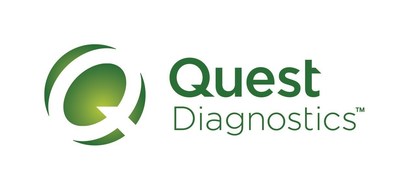Breast and Prostate Cancer Diagnoses Still Lagging During Second Full Year of COVID-19 Pandemic, Quest Diagnostics Health Trends® Study Finds
Rhea-AI Summary
A Quest Diagnostics study reveals that cancer diagnoses, particularly breast and prostate cancers, remain significantly below pre-pandemic levels, with a nearly 30% decline observed in early 2020. The analysis of over 1.1 million test results indicates that undiagnosed cancer cases have risen since the pandemic, leading to potential adverse outcomes and higher healthcare costs. Key findings include an 11% decline in diagnoses from April 2021 to March 2022, with breast and prostate cancer diagnoses still down by 11% and 17%, respectively. The study underscores the importance of routine screenings to mitigate rising health risks.
Positive
- The study's large sample size (over 1.1 million tests) provides a strong basis for its findings.
- There is a potential growing market for diagnostic services due to increased undiagnosed cancer cases.
Negative
- Overall cancer diagnoses have not returned to pre-pandemic levels, raising concerns over future healthcare costs.
- Continued delays in detection may lead to higher mortality rates and more aggressive treatments.
News Market Reaction 1 Alert
On the day this news was published, DGX gained 0.27%, reflecting a mild positive market reaction.
Data tracked by StockTitan Argus on the day of publication.
Analysis of more than 1.1 million test results across the United States suggests more people are living
with undiagnosed cancer than before the pandemic, with potential for worse outcomes and higher
healthcare costs in the future
SECAUCUS, N.J., Oct. 11, 2022 /PRNewswire/ -- More than two years after the COVID-19 pandemic began, diagnoses of breast and prostate cancer, two of the nation's leading causes of cancer death, continue to lag behind pre-pandemic levels, according to a nationally representative Quest Diagnostics Health Trends® study by Quest Diagnostics (NYSE: DGX), the world's leading provider of diagnostic information services.
Published today in the Journal of Clinical Oncology (JCO) Clinical Cancer Informatics, an American Society of Clinical Oncology (ASCO) journal, the study "New Cancer Diagnoses Still Lagging in United States in Second Full Year of COVID-19 Pandemic" analyzed rates of diagnoses of eight common types of cancer (prostate, breast, colorectal, lung, pancreatic, cervical, gastric and esophageal) of patients across the United States. Based on 1,144,879 deidentified results of diagnostic tests by Quest Diagnostics between January 2018 and March 2022, the study is believed to be the largest to evaluate the association of the pandemic on cancer diagnoses, based on objective laboratory data, in the United States.
The analysis found that cancer diagnoses plummeted by close to
The findings suggest more people are living with undiagnosed cancers now than prior to the pandemic. A delayed cancer diagnosis can lead to more advanced disease, more aggressive and costly treatment, and worse outcomes.
The study follows unaffiliated research by the American Association for Cancer Research (AACR) showing the death rate from cancer declined by
"The decline in the cancer death rate over the past three decades is a major healthcare achievement. And yet, our more recent analysis shows the pandemic, by delaying cancer diagnoses, is putting these gains at risk," said co-author Harvey W. Kaufman, MD, Senior Medical Director and Head of the Health Trends Research Program for Quest Diagnostics.
The latest Quest Diagnostics analysis builds on two studies published by the company's medical team in JAMA Open Network in 2020 and 2021.
Among the key findings:
- From March through May 2020, the monthly number of new diagnoses fell
30% for the 8 cancer types: breast, colorectal, lung, pancreatic, cervical, gastric, esophageal, and prostate. Declines were significant for all cancer types. - From June 2020 through March 2021, the number of diagnoses declined
15% compared to pre-pandemic levels. - From April 2021 to March 2022 (period 3), the number of diagnoses declined
11% compared to pre-pandemic levels. - Diagnoses of prostate and breast cancer remained significantly below pre-pandemic levels as late as period 3, at
17% and11% respectively.
"While restrictions to travel and healthcare services lifted by summer 2020, our analysis reveals that the pandemic's adverse influence on utilization of preventative care and cancer screenings continues this year," said co-author Yuri Fesko, MD, Vice President, Medical Affairs, Quest Diagnostics. "As an oncologist, I am particularly disturbed by the finding that cancer diagnoses for breast and prostate cancer are well below pre-pandemic levels. We hope this study encourages people to resume regular preventive care and to move without delay to visit their physician if they suspect a health problem. Doing so may literally save your life."
The Quest Diagnostics analysis has implications for hospitals and health systems, which are experiencing an increase in mastectomies (for breast cancer) and longer hospital stays for patients with prostate cancer along with other conditions that could have been caught in routine screenings.[ii]
"Hospitals and health systems are struggling to keep up with sicker patients requiring greater care, a trend that our analysis suggests may worsen, at least for some cancers," said Dr. Fesko.
The study's strengths include large size, national representation and use of objective laboratory data, while limitations include lack of racial and ethnic data.
More than 600,000 people are expected to die of cancer 2022. Breast and prostate cancer are expected to account for nearly
Quest Diagnostics Health Trends® is a series of scientific reports that provide insights into health issues, based on patient laboratory data, to empower better patient care, population health management and public health policy. The reports are based on the Quest Diagnostics database of more than 60 billion deidentified HIPAA-compliant laboratory test results, believed to be the largest of its kind in healthcare. Health Trends research has yielded novel insights into allergies and asthma, cancer, COVID-19, diabetes, heart disease, hepatitis, influenza, Lyme disease, prescription drug misuse and workplace wellness. Quest Diagnostics also produces the Drug Testing Index (DTI)™, a series of reports on national workplace drug positivity trends based on the company's employer workplace drug testing data.
Quest Diagnostics empowers people to take action to improve health outcomes. Derived from the world's largest database of clinical lab results, our diagnostic insights reveal new avenues to identify and treat disease, inspire healthy behaviors and improve healthcare management. Quest annually serves one in three adult Americans and half the physicians and hospitals in the United States, and our nearly 50,000 employees understand that, in the right hands and with the right context, our diagnostic insights can inspire actions that transform lives. www.QuestDiagnostics.com
For further information: For further information: Shawn Bevec (Investors): 973-520-2900 or Kim Gorode (Media): mediacontact@questdiagnostics.com
[i] CancerProgressReport.org. Philadelphia: American Association for Cancer Research. Accessed September 23, 2022.
[ii] Fitch Ratings. 2022 Mid-Year Outlook: U.S. Not for Profit Hospitals and Health Systems. https://www.fitchratings.com/research/us-public-finance/fitch-ratings-2022-mid-year-outlook-us-not-for-profit-hospitals-health-systems-16-08-2022. Accessed September 23, 2022.
[iii] National Institutes of Cancer. Cancer Stat Facts: Common Cancer Sites. https://seer.cancer.gov/statfacts/html/common.html#:~:text=How%20Many%20People%20Die%20of,cancer%20in%20the%20United%20States. Accessed September 23, 2022
![]() View original content to download multimedia:https://www.prnewswire.com/news-releases/breast-and-prostate-cancer-diagnoses-still-lagging-during-second-full-year-of-covid-19-pandemic-quest-diagnostics-health-trends-study-finds-301645273.html
View original content to download multimedia:https://www.prnewswire.com/news-releases/breast-and-prostate-cancer-diagnoses-still-lagging-during-second-full-year-of-covid-19-pandemic-quest-diagnostics-health-trends-study-finds-301645273.html
SOURCE Quest Diagnostics








